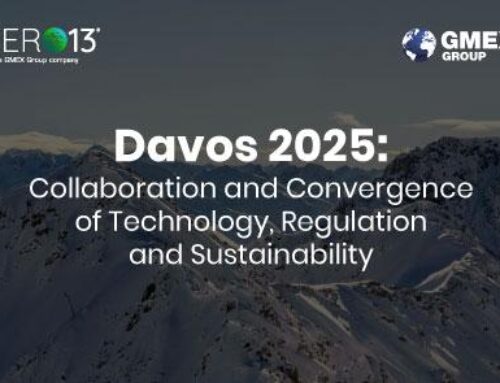The accelerating pace of climate change demands a fundamental shift in how we approach climate related investment, carbon trading, regulation, and the integration of sustainable practices into the global economy. On July 8th, a roundtable hosted by ZERO13, in collaboration with IOSS Solutions and Dicree, brought together thought leaders from across sectors to discuss these critical issues. The conversation was not merely an exchange of ideas but a deep dive into the practicalities of what “good” looks like in global climate markets and how it can be achieved.
The Promise and Challenges of Climate Finance
One of the central themes of the discussion was the evolving landscape of climate finance. The urgency of mobilising capital at scale to meet global climate targets to address the multi-trillion dollar annual climate financing gap was clear, yet so were the challenges. Participants acknowledged that while there is an increasing appetite for sustainable investments, the market remains fragmented, with varying standards and expectations.
Investment trends in climate and sustainability are influenced by a complex web of factors, including regulatory pressures, investor demand, and the ongoing development of financial products aligned with environmental, social, and governance (ESG) criteria. The roundtable highlighted the need for more robust frameworks that can accommodate these factors while ensuring that investments genuinely contribute to climate resilience and sustainability.
Leveraging Decentralised Finance and Tokenisation
Decentralised finance (DeFi) and tokenisation emerged as pivotal tools in driving climate resilience. The potential of these technologies to democratise access to climate finance was a recurring point of discussion. Tokenisation, in particular, offers a way to fractionalise and trade assets in a manner that is transparent and accessible to a broader range of investors.
Participants discussed how tokenisation could be applied to carbon credits and other sustainable assets, creating new opportunities for investment while also enhancing liquidity in the market. This approach not only supports the scaling of green finance but also aligns with the broader trend towards digital transformation in the financial sector.
However, the integration of DeFi and tokenisation into climate markets is not without its challenges. Regulatory uncertainty, technological barriers, and the need for interoperability across platforms were all identified as critical hurdles that must be addressed to realise the full potential of these innovations.
Integrating Climate Risk and Sustainability into Financial Operations
Another key area of focus was the integration of climate risk and sustainability principles into the core operations of financial institutions. This is not just about compliance with regulatory standards but also about embedding sustainability into the DNA of financial operations.
The roundtable participants emphasised that financial institutions must move beyond a compliance-driven approach to one that sees sustainability as a driver of long-term value creation. This requires a fundamental rethinking of risk management practices, with climate risk being treated as a financial risk. The integration of climate risk into financial models and decision-making processes is essential for the resilience of financial systems in the face of climate change.
Moreover, the conversation touched on the importance of aligning financial products with the United Nations Sustainable Development Goals (SDGs). By doing so, financial institutions can ensure that their products not only meet investor expectations but also contribute to global efforts to combat climate change and promote sustainable development.
Navigating Regulatory Frameworks: Integrity and Trust
The importance of navigating and understanding regulatory frameworks was another critical topic. The regulatory landscape for climate finance is rapidly evolving, with increasing emphasis on transparency, accountability, and the integrity of climate-related financial products.
Roundtable participants discussed the need for consistent and harmonised regulations that can provide clear guidance to market participants. The lack of standardisation in climate-related disclosures and reporting was identified as a significant barrier to building trust and ensuring the integrity of climate markets.
There was also a strong emphasis on the role of technology in supporting regulatory compliance. Digital tools can help streamline reporting processes, improve data accuracy, and enhance the transparency of climate-related financial products. By leveraging technology, financial institutions can not only meet regulatory requirements but also build trust with investors and other stakeholders.
Collaboration: A Catalyst for Innovation and Impact
The roundtable underscored the importance of collaboration across sectors and geographies. Climate change is a global challenge that requires coordinated action, and the collaboration between ClimateTech companies, FinTech firms, traditional financial institutions, and policymakers is crucial for driving meaningful progress. Climate FinTech was also identified as an emerging sector at the intersection of ClimateTech and Fintech.
Participants highlighted the need for partnerships that can foster innovation and bring together the diverse expertise needed to tackle the complexities of climate finance. This includes collaborations to develop new financial products, share best practices, and advocate for policy changes that support the growth of sustainable finance.
Moreover, there was a recognition that collaboration is not just about working together; it is also about creating inclusive and accessible markets. The democratisation of climate markets, through clarity of knowledge and process, is essential for ensuring that the benefits of sustainable finance are widely shared.
The Path Forward: Democratising Climate Markets
In conclusion, the ZERO13 roundtable provided valuable insights into the opportunities and challenges associated with climate markets and sustainability ecosystems. The discussions made it clear that while there is no one-size-fits-all solution, there are several key strategies that can drive progress:
- Innovative financial products:Continue exploring and implementing innovative financial products that align with the principles of sustainability in addition to the general need to develop better climate market infrastructure. This includes leveraging DeFi and tokenisation to create more accessible and liquid markets for sustainable assets.
- Integrating a hybrid system:Harness solutions that bridge the gap between traditional systems and digital systems (which can be on multiple blockchains), fostering interoperability.
- Sustainability in core operations:Financial institutions must integrate climate risk and sustainability principles into their core operations, not just as a compliance exercise but as a driver of value creation.
- Regulatory compliance with integrity: Navigating regulatory frameworks with integrity and transparency is crucial for building trust in climate markets. The use of technology to support regulatory compliance, harness high integrity standards and enhance transparency will be a key enabler in this regard.
- Collaboration and inclusivity:Fostering collaboration across sectors and geographies is essential for the success of climate markets. By ensuring that markets are accessible and understandable to all participants, we can create a more sustainable and equitable future.
The path forward is challenging, but with the right strategies and a commitment to innovation and collaboration, it is possible to bridge the climate financing gap and build a resilient, sustainable global economy.



